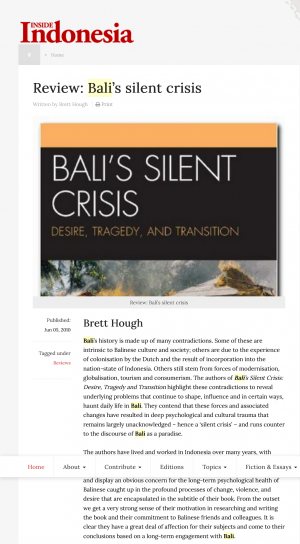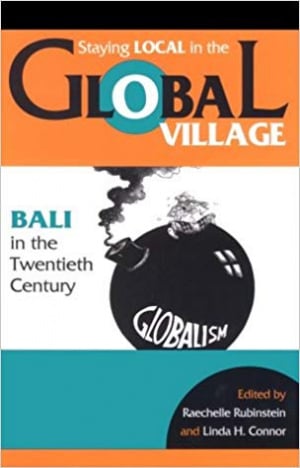Bali’s history is made up of many contradictions. Some of these are intrinsic to Balinese culture and society; others are due to the experience of colonisation by the Dutch and the result of incorporation into the nation-state of Indonesia. Others still stem from forces of modernisation, globalisation, tourism and consumerism. The authors of Bali’s Silent Crisis: Desire, Tragedy and Transition highlight these contradictions to reveal underlying problems that continue to shape, influence and in certain ways, haunt daily life in Bali. They contend that these forces and associated changes have resulted in deep psychological and cultural trauma that remains largely unacknowledged – hence a ‘silent crisis’ – and runs counter to the discourse of Bali as a paradise.
The authors have lived and worked in Indonesia over many years, with much of that time in Bali. With academic backgrounds in cultural studies and health promotion they bring an interesting perspective to their subject and display an obvious concern for the long-term psychological health of Balinese caught up in the profound processes of change, violence, and desire that are encapsulated in the subtitle of their book. From the outset we get a very strong sense of their motivation in researching and writing the book and their commitment to Balinese friends and colleagues. It is clear they have a great deal of affection for their subjects and come to their conclusions based on a long-term engagement with Bali.
The full review of the book is available in:
https://www.insideindonesia.org/review-bali-s-silent-crisis?highlight=WyJiYWxpIiwiYmFsaSdzIiwiJ2JhbGkiLCJiYWxpJyIsImJhbGknLiIsIidiYWxpJ3MiLCJiYWxpJywiLCJiYWxpcycuIl0%3D








Enable comment auto-refresher